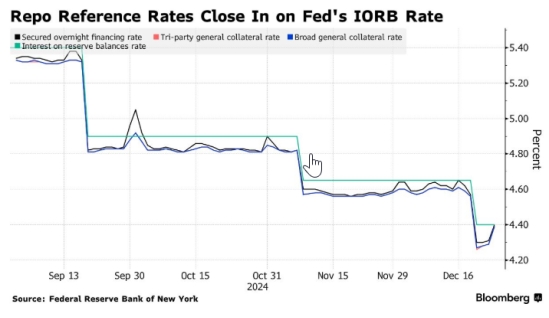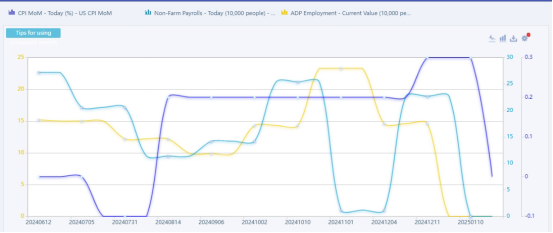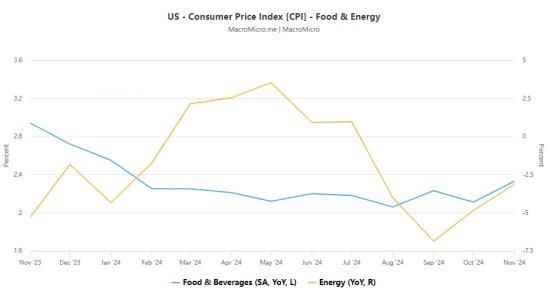Will the Fed's delicate balance be broken? The tug of war between interest rate adjustment and new government policy !
- 2025年1月8日
- Posted by: Macro Global Markets
- Category: News
On the global financial stage, the U.S. monetary policy and financing market dynamics are a barometer of the global economy and play a vital role in the stability and predictability of global financial markets. As 2024 draws to a close and 2025 approaches, market participants are nervously watching key interest rate changes in the U.S. overnight financing market and how the Federal Reserve can maintain the consistency and independence of its policies amid the uncertainty of the new administration's policies. These changes not only foreshadow the short-term direction of the U.S. economy, but may also have a profound impact on the global economy.
After the Federal Reserve adjusted the reverse repurchase rate last week to keep the US funding market running smoothly, the rise in key interest rates has attracted widespread attention from the market. Data released by the New York Federal Reserve on Thursday showed that the secured overnight financing rate (SOFR) jumped from 4.31% to 4.40%, in line with the reserve requirement ratio, reflecting that banks' end-of-year constraints on their balance sheets began to push up overnight funding costs. As an important indicator of the US short-term lending market, SOFR's changes not only affect the pricing of financial products, but also have a profound impact on global monetary policy and capital flows.

In this context, the Fed's policy moves are particularly important. Nick Timiraos, a reporter for the Wall Street Journal who is known as the "Fed's mouthpiece," pointed out that the Fed is trying to balance avoiding confrontation with President-elect Trump while dealing with potential inflationary pressures from his policies. Fed Chairman Powell made it clear in early November that the Fed would not set interest rates based on assumptions or speculation about the incoming administration's policies, including potential changes in trade and immigration policies.

Fed officials expect inflation excluding food and energy items to fall to 2.5% next year, from a previous forecast of 2.2%. The forecast shows that the Fed's concerns about inflation are rising. Trump's advisers have argued that deregulation and measures to promote energy production can offset the impact of rising commodity prices, allowing inflation to continue to fall. But Fed officials' forecasts and the market's reaction show that they are cautious about this possibility.

In summary, the rise in key interest rates in the US funding market is closely tied to the Fed's policy outlook. The Fed is walking a tightrope between maintaining market stability and responding to potential inflationary pressures while avoiding confrontation with the new administration. The market remains alert to further signs of volatility, considering how long the central bank can continue to shrink its balance sheet. The Fed's policy decisions will have a profound impact on the US and global economies, and investors need to pay close attention to the Fed's policy trends to grasp market dynamics and make wise investment decisions.
